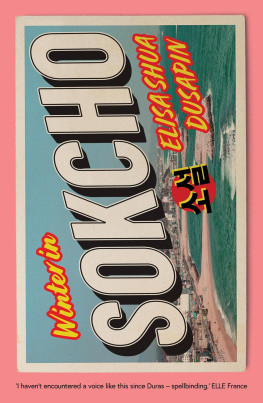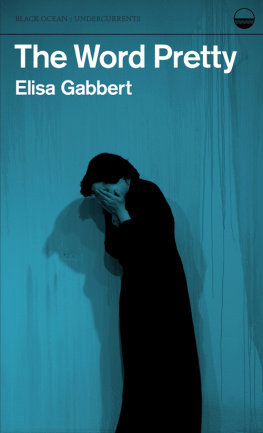AMERICAN BROTHER
ELISA M. CAMARA

American Brother
2013 Elisa M. Camara
Published by Hellgate Press
(An imprint of L&R Publishing, LLC)
Published by Hellgate Press
(An imprint of L&R Publishing, LLC)
All rights reserved. By payment of the required fees, you have been granted the non-exclusive, non-transferable right to access and read the text of this e-book on screen. No part of this text may be reproduced, transmitted, down-loaded, decompiled, reverse engineered, or stored in or introduced into any information storage and retrieval system, in any form or by any means, whether electronic or mechanical, now known or here-inafter invented, without the express wtitten permission of L&R Publishing, LLC.
Hellgate Press
PO Box 3531
Ashland, OR 97520
email: sales@hellgatepress.com
Editors: Michael Trudeau, Harley B. Patrick
Cover design: Douglas Nelson/nelsoncreative.com
For more about American Brother:
www.americanbrother.us email: elisa@americanbrother.us
or visit American Brother on Facebook
e-Book edition: October 2013. ISBN: 978-1-55571-739-1
In honor of my only brother, Sergeant Mecot E. Camara, United States Marine Corps.
With thanks to my three amazing sons, Joe, Sam, and Hank, who inspire me daily, and especially to Cousin James, who believed in me.
This book is written with love to Mecot Echo Camara, my brothers only son and legacy to the Camara family in the United States.
Contents
Foreword
THE LAST TIME I STOOD BY SERGEANT MECOT E. CAMARA, he lay inside a silver transfer case, a kind of casket that the United States government uses to transport the bodies of her warriors killed in action. I remember looking at the two-inch wide strip of masking tape affixed to the foot of that casket and reading the one word written on it, Camara. It matched the name on the roster that I had listing the Marines and other warriors among this shipment of those killed in the bombing in Beirut on October 23, 1983. My brothers, with whom I had served earlier in the year.
As the name, Camara, registered in my mind, I gasped. A stab of pain struck my heart. I stood there looking down at the silver casket, and my emotions welled over my eyelids. I held my breath and gritted my jaws tight, but the tears that streamed off my cheeks gave away my particular grief. What a good Marine lay here! A damned fine Marine! I knew him well.
The name, Camara, is one that sticks in the mind. But it was the smile of the man that wore the name that stuck more. A Marine filled with goodness, love of his family, his Marine Corps, and love of his country.
A sunny day in May, 1983; I will never forget it. When I think of Mecot Camara, his enthusiastic smile, I think of that day. He had become a fixture around the Marine Amphibious Unit headquarters element, and my crew. When I think of him, I see him that day. Wearing a t-shirt and his utility trousers, sweeping the asphalt parking lot where our General Purpose Medium tents stood, pegged into the pavement.
He never loafed. Not one to sit and watch clouds. So he grabbed a push-broom and went to work. A seemingly silly task. Sweeping up, around the tents. I stood at the sandbagged wall in front of the office door, coffee in my hand, and marveled at him. I laughed, and he beamed this great big smile at me.
There at the 24th Marine Amphibious Unit headquarters, inside the old firehouse and training facilitya long, concrete building with a few open bays and some officeswe could oversee the greater airport area. Across the way, a big, white warehouse of some sort stood with a big, white wall facing us. We used that white wall to project movies at night, when weather and relative safety allowed. Marines would sit on the pavement and watch some old flick. Corporal Camara (not yet Sergeant) made a point of sweeping the area where we sat.
My crew and I had absconded with an ugly black leather couch from the bombed-out United States Embassy weeks earlier. I usually sat on it, along with Gunnery Sergeant Steve Merrill and Staff Sergeant Jim Hickman. Sometimes Corporal Camara got to sit on it too. But most of the time he sat on the pavement with the rest of the junior ranks, so he kept the butt-hurting gravel swept off of it on movie night.
In those days, I was still new at being a Marine Warrant Officer. Gunner was the common term. I had graduated The Basic School at Quantico, Virginia on April 1, 1983, a class of April Fools. I caught a plane that very same day, bound to Beirut to relieve Captain Dale Dye as Deputy Public Affairs Officer for the Joint Public Affairs Bureau, Beirut.
Headquarters, U. S. Marine Corps had task organized the public affairs detachment, handpicked its members, and assigned us to Beirut, Lebanon in support of the Multinational Force, sent there to keep peace. We worked in essence as a support element for the commanding officer of the U. S. Forces assigned to the Multinational Force, but were directed by the Commandant of the Marine Corps. The official name did not include Peacekeeping, although it was the mission and the media added it frequently.
I had known Captain Dye since he was a corporal and I was a private first class, Viet Nam the war ongoing then. And we were friends. I had last seen him seven months earlier in Denmark, September 1982. I had given him a ride in my rented BMW from Billund, in southern Jutlands rural Vejile County, to the northern tip of Denmark and our departure airport at Aalborg. We had been working NATO in northern Germany and across Denmark, especially busy in the central region around Karup and Viborg. The Commander Baltic Approaches was headquartered at Billund.
As those who also know Dale will attest, he can be rather demonstrative, especially when challenged. He is a Marines Marine, after all. He swings through the trees with a knife in his teeth, among the best of us. An incident at the bar in Beiruts infamous Commodore Hotel had gotten him relieved of duties and sent packing home. One of the many international media who resided at the Commodore had commented to Dale about the latest Rules of Engagement made by the politicians in Washington, D.C. (people who knew nothing of war). Marines were not allowed to carry a loaded weapon. We could have loaded magazines, but we could not have them inserted in our rifles or pistols. The politicians had imagined that a Marine might accidently shoot someone if he carried a loaded firearm.
None of us liked that condition, plagued upon us mostly by micromanaging suits who had no clue, but we complied. When anyone might watch. On patrol, however, between you and me, I had my Marines locked and loaded. Id rather face a court-martial than have dead Marines. Id go to jail for my Marines. So would Dale Dye, and I know that Mecot Camara would too.
But we had to put on the good face for America and the world. Dale did that with aces. He told those reporters in the Commodore Hotel bar that it made no difference if the magazine was in or out of the weapon. A Marine could lock and load, and engage an enemy in a heartbeat anyway. And he demonstrated it with the forty-five he carried in his shoulder rig.
He locked, loaded, and then put the muzzle of his 1911A1 .45 ACP caliber pistol right in the face of the reporter who taunted him. One smooth heartbeat move. Oh, it was way too cool!
While several combat journalists found amusement in the antic, the man with the loaded and cocked gun up his nose found it quite disturbing. He complained. Cables transmitted to various news headquarters. Those noncombatant souls were even less amused. They complained.










